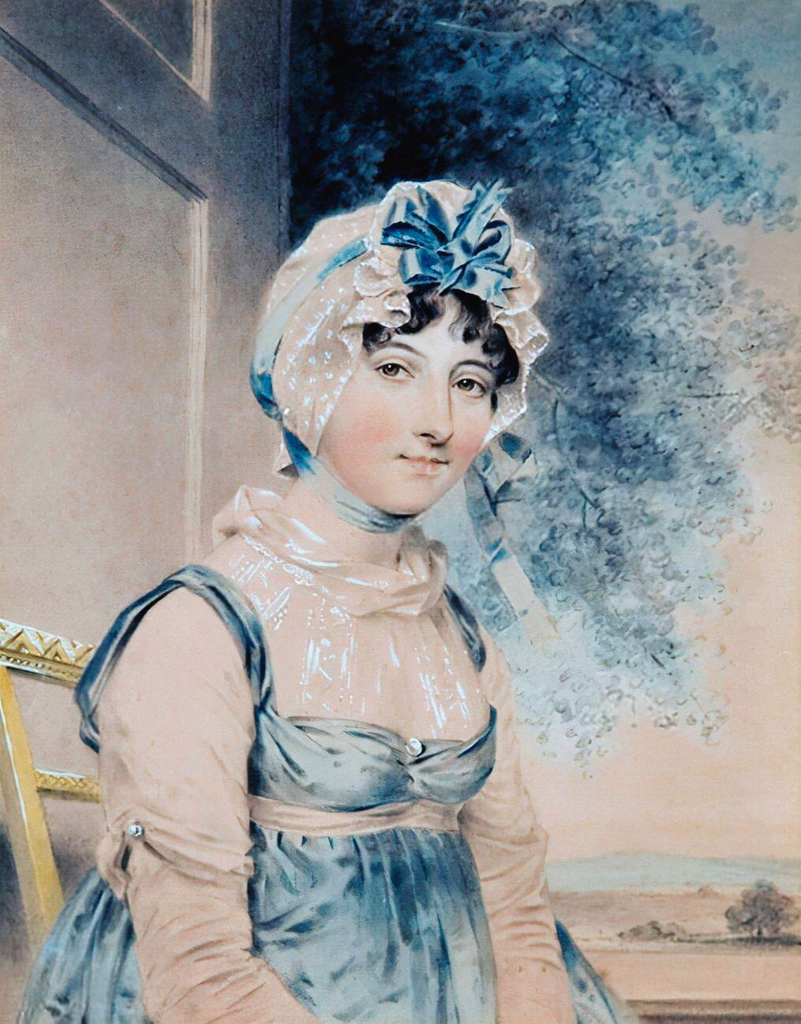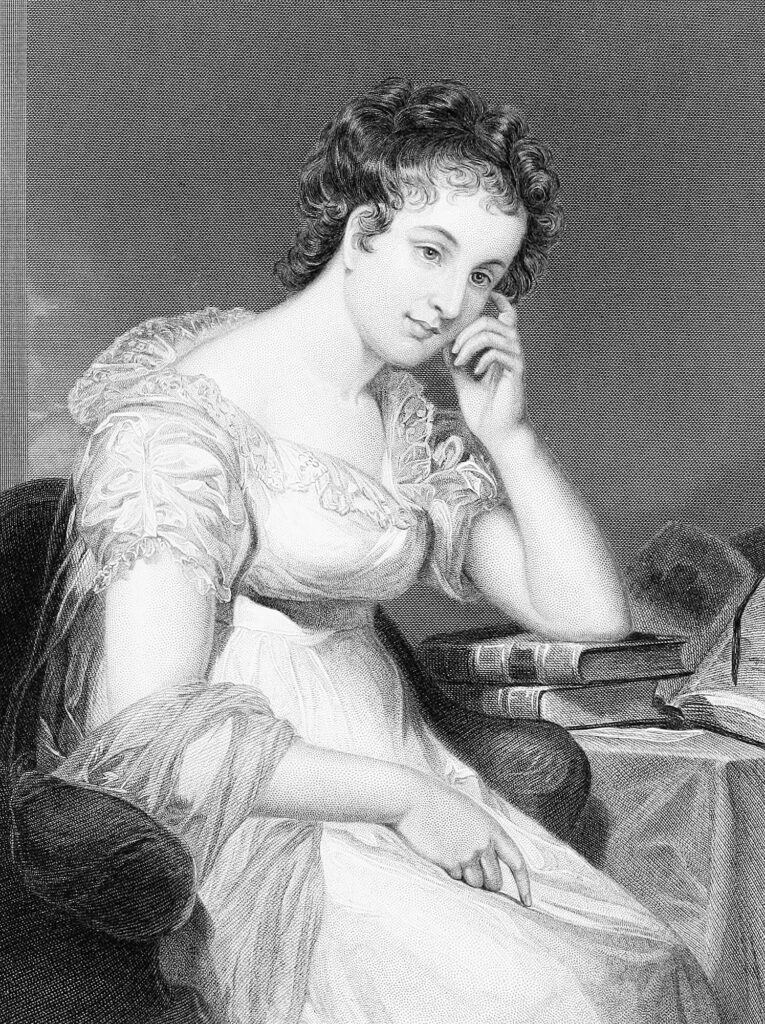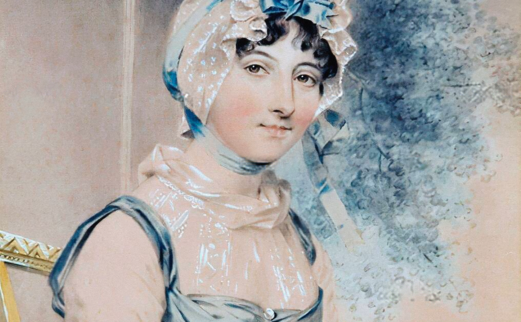
Maria Edgeworth (1768–1849) was an Anglo-Irish Regency author known for her novels and children’s literature. Her correspondence (an estimated 10,000 extant letters in archives, institutions, and private collections worldwide) offers insights into a wide variety of topics including science, politics, and the lives and works of contemporary authors.
The University of Tennessee Libraries and the Z. Smith Reynolds Library at Wake Forest University are collaborating with professors of English at UT, Wake Forest, Texas A&M University, and Xavier University of Louisiana to create a comprehensive open-access digital archive of Edgeworth’s correspondence. The collaboration, known as the Maria Edgeworth Letters Project, is working to make available digital images of the letters alongside transcriptions.
The idea for the project emerged in 2016, during the Doing Edgeworth Studies roundtable at the American Society for Eighteenth-Century Studies conference. Several members of the current project team attended the roundtable, including Susan Egenolf of Texas A&M, Hilary Havens of UT, Jessica Richard of Wake Forest, and Robin Runia of Xavier. Following a presentation by Runia, Havens identified the need for a complete scholarly edition of Edgeworth’s letters and Richard proposed a digital environment as the only feasible venue for such a sprawling project.
Chelcie Rowell, digital initiatives librarian at Reynolds Library through the project’s first months, began to imagine how to structure the project. After Rowell’s departure at the end of 2016, her role was taken over by Assistant Professor of English and Digital Humanities Research Designer Carrie Johnston. Wake Forest established a website at mariaedgeworth.org to share the project’s goals and initial work with a wider audience.
With the advent of the pandemic in 2020, the editors, aided by the robust participation of library faculty at Wake Forest, began regular virtual meetings. In spring 2021, Meredith Hale of UT Libraries joined the project to advise on metadata, encoding, and linked open data.
Both Reynolds Library and the UT Libraries have been key in creating metadata (that is, descriptive data about the letters and their structure) and establishing workflows to complete that descriptive work. While its importance is sometimes overlooked, metadata enables users to find content of interest on search platforms. At Reynolds Library, Johnston and Heather Barnes supervised file naming and management of the digital scans of the letters. They created basic metadata for each letter, including a title, author, recipient, date, length, and holding institution.
At UT Libraries, Hale led the development of files that established identifiers for persons, places, and written works mentioned in Edgeworth’s letters. The files allow users to find all mentions of a particular entity across the letters, regardless of variations in naming.
Following the guidelines of the Text Encoding Initiative, an international consortium that develops and maintains standards for the digital representation of texts, the project files consist of a personography (listing persons), a placeography (listing places), and a workography (listing written works). The three files are informally referred to as “the ographies.”
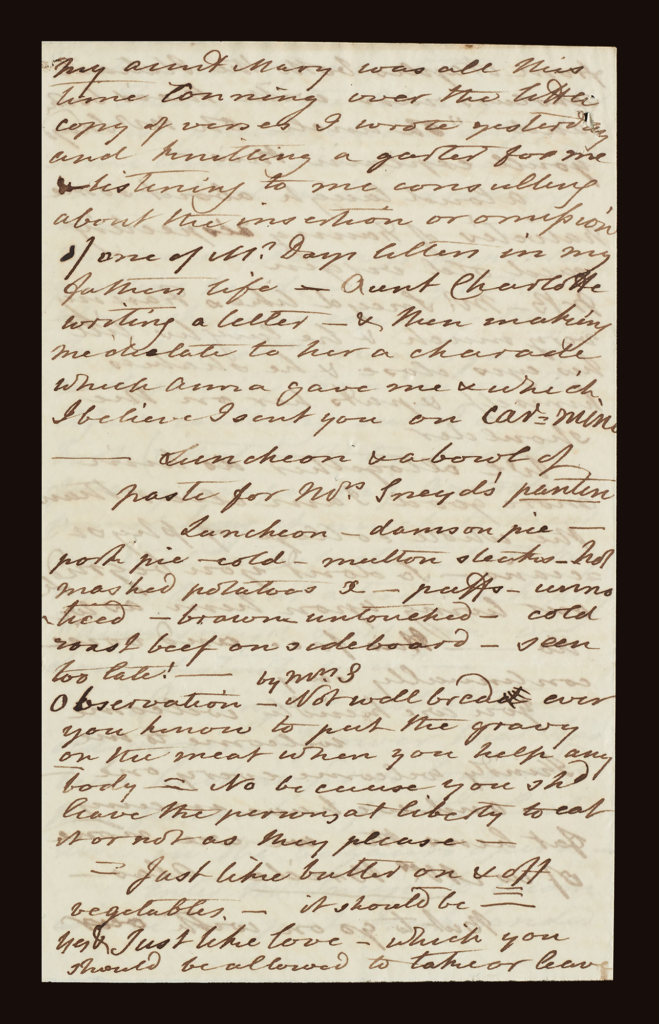
The identifiers tag text referring to each entity within the letters. For instance, whether the author Walter Scott is mentioned as “Sir W. Scott” or another variation, the identifier brings together all the letters in which he is mentioned. This collocation greatly assists researchers with finding relevant content and digging deeper into the texts. While personography and placeography files are common in Text Encoding Initiative projects, the Maria Edgeworth Letters Project’s workography file is arguably the first of its kind.
Edgeworth’s letters provide an essential view of British and Irish life at the turn of the 19th century and touch on a wide variety of topics including science, gender, family, politics, education, religion, and abolitionism. For example, an 1819 letter from Edgeworth to her stepmother, Frances, includes relationship advice as well as a passage on French exploding bullets. Edgeworth meticulously describes the experiment and includes small diagrams that demonstrate her more than casual interest in scientific topics. Within the same letter, Edgeworth shares the humorous words of her relative Mrs. Sneyd regarding the proper distribution of gravy on meat: “Not well bred ever you know to put the gravy on the meat when you help any body—No because you shd leave the persons at liberty to eat it or not as they please.”
As of the start of the 2023–24 academic year, several milestones have been reached toward fulfilling a National Endowment for the Humanities grant-funded pilot project. Most significantly, 744 of Edgeworth’s letters hosted on the Zooniverse platform have been transcribed by volunteers. Several transcribe-a-thon events were organized to help achieve that total.
One such event was held in April 2023 as part of the Interdisciplinary Nineteenth Century Studies conference. Led by Havens, the transcribe-a-thon received additional support from UT Libraries through the loaning of laptops and sharing of log-in credentials for visiting scholars. Digital Scholarship Librarian Joshua Ortiz Baco volunteered at the event to help attendees transcribe Edgeworth’s letters.
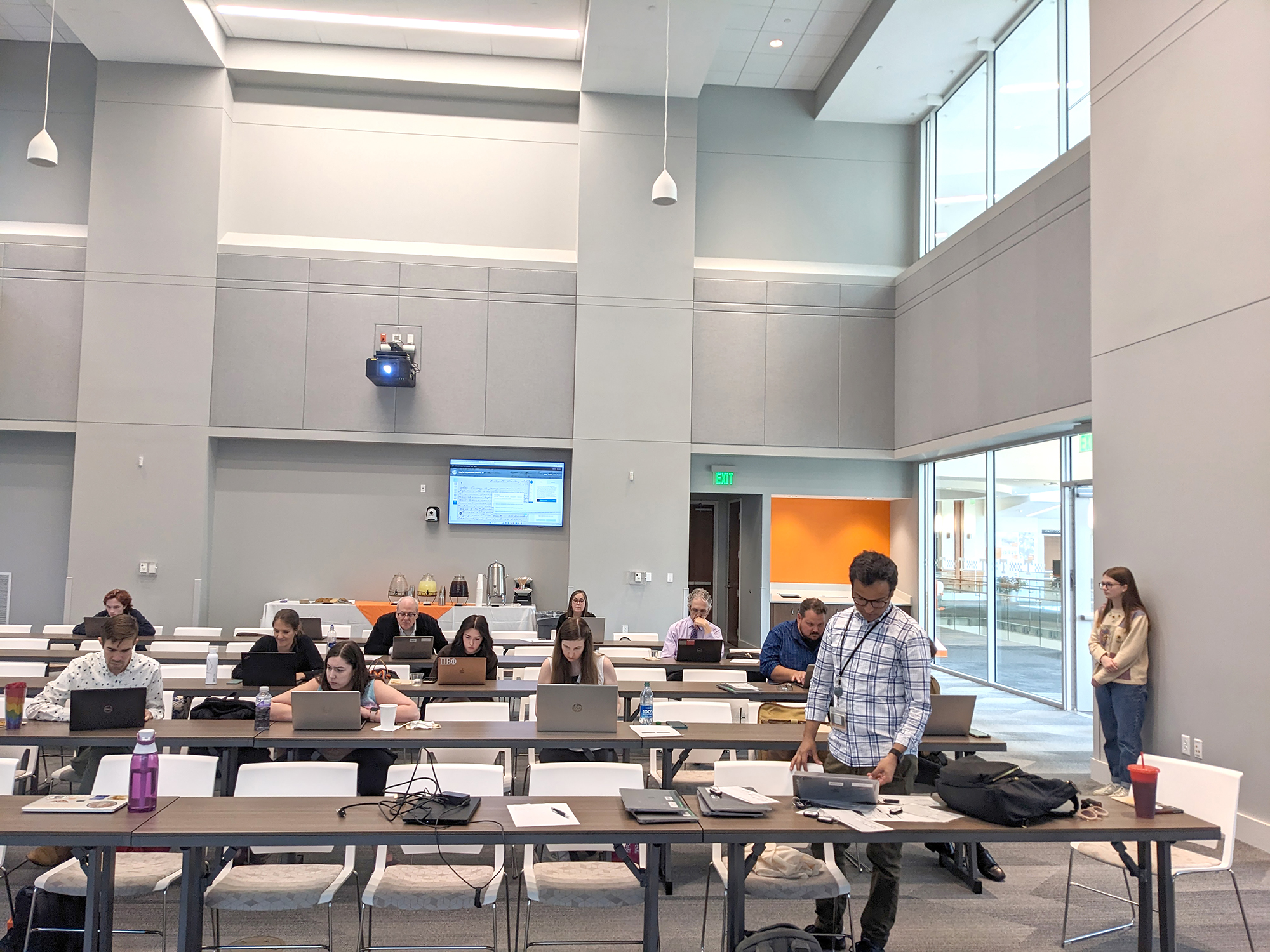
Research assistants have been working to add structure to this raw text by encoding the letters using the Text Encoding Initiative guidelines. Approximately 187 letters have been encoded so far, with the aim of finishing 200 letters by April 2024.
Many hands have been involved in transforming Edgeworth’s letters into structured data. The Maria Edgeworth Letters Project team is looking forward to sharing Edgeworth’s correspondence through an open-access database in the future.
The development of the Maria Edgeworth Letters Project has been supported by a Humanities Collections and Reference Resources–Foundations grant from the National Endowment for the Humanities and internal grants from the University of Tennessee, Knoxville; Wake Forest University; Texas A&M University; and Xavier University of Louisiana. The internal grants from UT Knoxville include funding from the Humanities Center, the Department of English, UT Libraries, two summer graduate research assistantships, and a College Award for New Research in the Arts and Humanities.
